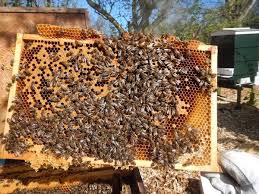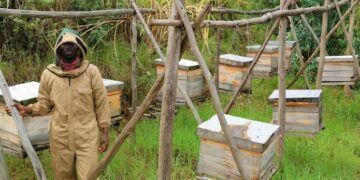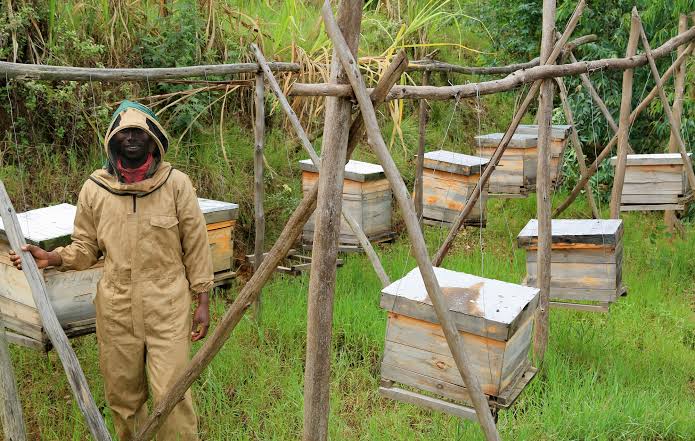By Leonard Kamugisha Akida,
KAMPALA
Uganda’s honey production is under threat due to increasingly erratic weather patterns and unsustainable agricultural practices, Lt. Col. (Rtd) Bright Rwamirama, the State Minister for Agriculture, has warned.

Speaking ahead of World Bee Day, which will be commemorated on May 20, Rwamirama said climate change is negatively affecting pollinators, especially bees, with serious implications for the country’s honey industry.
“Climate change has dangerous implications for the survival and success of pollinators. Rising temperatures, wildfires, and habitat loss are reducing honey production,” he said.
Uganda produces 210,000 metric tonnes of honey annually as of June 2024, with projections to increase to 500,000 metric tonnes by 2029, according to the Ministry of Agriculture, Animal Industry and Fisheries (MAAIF). The country currently has about 1.2 million commercial beekeepers, a figure expected to rise to 1.7 million within five years.
However, Rwamirama noted that deforestation and poor agricultural practices are contributing to habitat destruction and disruption of the natural relationship between plants and pollinators.
MAAIF records show Uganda exports over 250,000 metric tonnes of honey and other bee products to international markets including Germany, Kenya, Rwanda, the DRC, Sweden, Denmark, China, the USA, and the UAE.
Rwamirama also raised concern over the proliferation of counterfeit honey on the Ugandan market, warning consumers against purchasing unpackaged honey sold on streets.
“Avoid loose liquid products. Look for certified products by UNBS and MAAIF in recognized shops. If you are buying a caracide, buy the one which is sealed and from a certified dealer, buy the one which is packed and sealed,” he cautioned. “When you buy unpackaged honey on the roadside just because it is cheap, you risk your health. Anything that is loose can contain anything.”
The national World Bee Day celebrations will be held at the Government Farms in Kawanda under the theme, “Bee Inspired by Nature to Nourish Us All.”
Rwamirama emphasized that bees are not just insects but key partners in sustaining agricultural productivity, environmental conservation, and economic livelihoods.








































